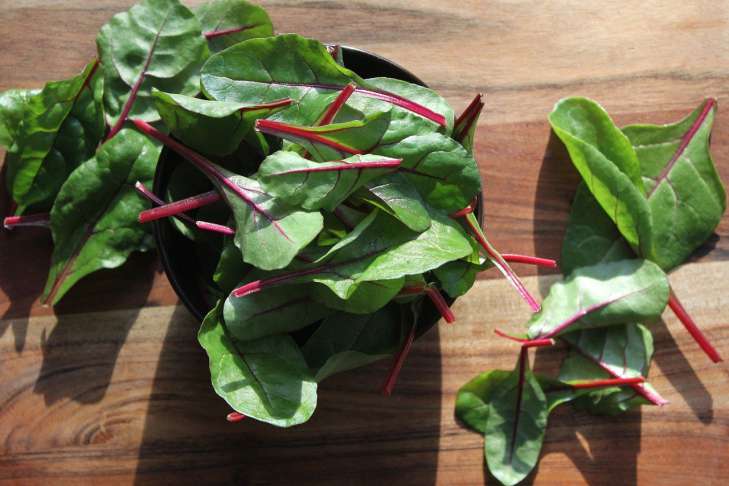Chard can vary by variety and be sweeter or waterier.
The taste of the leaves and petioles has been compared to the taste of beets, asparagus, cauliflower and even corn.
It is distinguished by the fibrous texture traditional for tops.
What are the benefits of chard
Chard is great for preventing osteoporosis. with anemia.
The high iron content in the leaves helps the formation of new blood cells, strengthens the cardiovascular system, and prevents anemia.

The presence of vitamin K prevents internal bleeding.
Chard is rich in vitamin K, which plays a very important role in bone health.
Vitamin K may help improve calcium absorption and reduce urinary calcium excretion, thereby increasing bone mineral density and preventing osteoarthritis.
Can chard leaves be eaten raw
Chard lettuce is a close relative of beets.
Only its leaves and petioles are eaten, both raw and as part of many dishes.
Greens can be added to fresh salads, smoothies, snacks and homemade soups.
Stuffed leaves can be cooked over a fire in the same way as dolma or cabbage rolls.
Stewed with the addition of oil and spices, it is served as a side dish.









